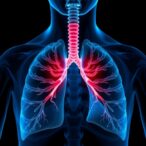
In the relentless battle against colorectal cancer (CRC), patients often face an insidious adversary beyond tumor cells—the debilitating cancer-related fatigue (CRF). This condition severely undermines the quality of life, disrupting daily activities and rehabilitation efforts. Recently, a comprehensive meta-analysis published in BMC Cancer has shed new light on the potent role of aerobic exercise in mitigating CRF, potentially revolutionizing supportive care strategies for colorectal cancer survivors.
Colorectal cancer remains one of the leading causes of cancer morbidity and mortality worldwide. While advances in surgical, chemotherapeutic, and radiotherapeutic interventions have improved survival rates, the aftermath of cancer treatment often leaves patients grappling with persistent fatigue that conventional medical approaches have struggled to alleviate effectively. This research explores a promising non-pharmacological intervention—targeted aerobic exercise—to counteract the physical and psychological burdens of CRF.
The meta-analysis rigorously aggregated data from randomized controlled trials (RCTs), encompassing nine studies with a collective sample size of 425 colorectal cancer patients. Utilizing advanced statistical methods through Revman 5.3 software, the study meticulously compared varying types of aerobic exercise protocols and intensities to quantify their effectiveness in reducing the severity of cancer-related fatigue.
.adsslot_j6FqQhbIlG{ width:728px !important; height:90px !important; }
@media (max-width:1199px) { .adsslot_j6FqQhbIlG{ width:468px !important; height:60px !important; } }
@media (max-width:767px) { .adsslot_j6FqQhbIlG{ width:320px !important; height:50px !important; } }
ADVERTISEMENT
Aerobic exercise, known for its cardiovascular and metabolic benefits, has been identified as a crucial factor in maintaining physical function and overall well-being. However, the optimal exercise modality for addressing CRF in CRC patients has long remained ambiguous due to inconsistencies in prior clinical trial designs and outcomes. This investigation aimed to delineate the differential impacts of continuous versus interval training formats on fatigue reduction.
Remarkably, the analysis revealed that aerobic exercises significantly ameliorate CRF symptoms, with a standardized mean difference (SMD) of −0.35, underscoring a moderate but meaningful therapeutic effect. The statistical significance was confirmed with a Z-value of 2.39 and a p-value of 0.02, indicating a low probability that these findings are due to chance. Notably, continuous and interval training regimes emerged as the most efficacious exercise protocols, highlighting the necessity of exercise customization.
Exercise intensity also played a pivotal role in therapeutic outcomes. While moderate intensity was beneficial, the study suggests that both intensity and exercise type must be carefully calibrated to individual patient capabilities and fatigue levels. This points toward a precision medicine approach in exercise oncology, whereby interventions are tailored to optimize patient responses while minimizing risks.
Despite these compelling findings, the meta-analysis detected potential publication bias within the pool of CRF research. This caveat stresses the importance of encouraging publication of studies with null or negative results to fully elucidate the effects of exercise on fatigue and avoid inflated effectiveness estimates.
From a mechanistic perspective, aerobic exercise may attenuate CRF through multiple physiological pathways, including enhanced mitochondrial function, reduced systemic inflammation, and improved neuroendocrine regulation. These benefits collectively ameliorate the multifactorial symptoms of fatigue, which encompass physical exhaustion, cognitive impairment, and emotional distress.
Equally important, the meta-analysis highlights the broader implications of incorporating exercise into standard cancer care regimens. Beyond fatigue relief, regular physical activity has been associated with improved health-related quality of life (HRQoL), better psychological well-being, and potentially even favorable cancer prognoses, making it a vital adjunct therapy.
Current clinical guidelines increasingly advocate for exercise as a supportive measure; however, the paucity of consensus on the specific nature, duration, and intensity of aerobic training has hindered widespread implementation. By synthesizing existing RCT data, this study offers a critical evidence base to inform clinicians and rehabilitation specialists in designing effective exercise prescriptions.
Furthermore, the findings prompt a call to action for expanded research endeavors. Longitudinal studies examining the durability of exercise benefits, as well as investigations into molecular biomarkers that predict responsiveness, are essential next steps. Such efforts would enable more nuanced understanding and integration of exercise oncology principles into routine patient care.
It is also pertinent to consider patient adherence and safety. Tailoring aerobic exercise regimens to accommodate CRC patients’ varying fitness levels, treatment side effects, and comorbidities is paramount to maximize participation and minimize adverse events. Multidisciplinary collaboration among oncologists, physiotherapists, and behavioral specialists will be crucial to achieve this.
The study’s methodological rigor, encompassing comprehensive database searches including PubMed, Web of Science, Embase, and Cochrane Library up to February 2024, lends robustness to its conclusions. Nevertheless, the relatively small number of included studies and participants indicate that further large-scale RCTs are warranted to validate and expand these promising findings.
In essence, this meta-analysis underscores aerobic exercise as a viable, low-cost, and accessible intervention for managing cancer-related fatigue in colorectal cancer patients. It bridges a significant gap in supportive oncology by elucidating the comparative benefits of exercise modalities, setting the stage for refined, personalized rehabilitation strategies.
As the oncology field continues to evolve towards holistic survivorship care, integrating scientifically validated exercise programs emerges as a beacon of hope for alleviating one of the most pervasive and challenging complications of colorectal cancer. The path forward beckons collaboration, innovation, and dedication to translating these insights into tangible improvements in patient quality of life.
Subject of Research: Cancer-related fatigue management in colorectal cancer patients through various aerobic exercise regimens.
Article Title: Effect of different types of aerobic exercises on cancer-related fatigue among colorectal cancer patients: a meta-analysis based on randomized controlled trials.
Article References:
Xiaoyang, X., Chunhui, Z., Xiaolan, Y. et al. Effect of different types of aerobic exercises on cancer-related fatigue among colorectal cancer patients: a meta-analysis based on randomized controlled trials. BMC Cancer 25, 1145 (2025). https://doi.org/10.1186/s12885-025-14532-y
Image Credits: Scienmag.com
DOI: https://doi.org/10.1186/s12885-025-14532-y
Tags: aerobic exercise benefits for cancer patientscancer-related fatigue in colorectal cancercolorectal cancer fatigue managementenhancing rehabilitation through aerobic activitiesimproving quality of life in cancer survivorsmeta-analysis on aerobic exercise and fatiguenon-pharmacological interventions for CRFovercoming fatigue in colorectal cancer treatmentpsychological benefits of exercise in cancer patientsrandomized controlled trials on exercise and cancersupportive care strategies for colorectal cancertargeted exercise protocols for cancer recovery



